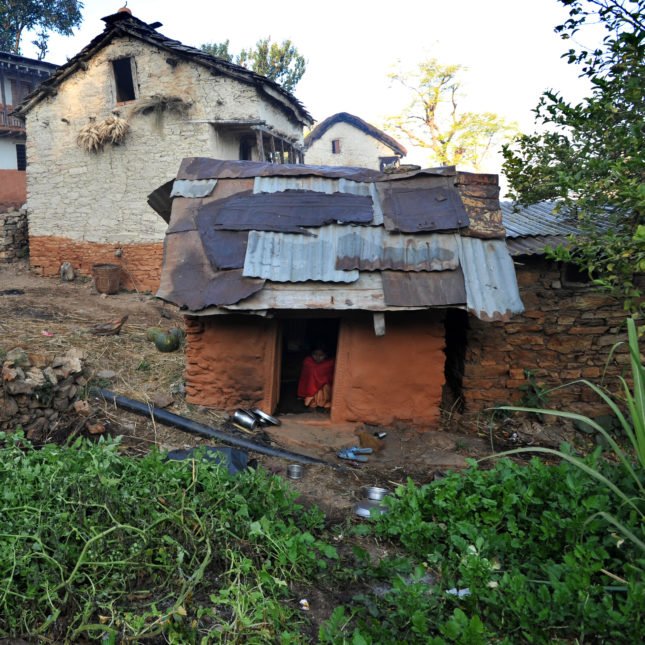Kathmandu: Nepali police have detained the brother-in-law of a woman who died in a ‘menstruation hut’ in what is believed to be the first arrest over the outlawed tradition, officials said Friday.
Many communities in Nepal view menstruating women as impure and in some remote areas they are forced to sleep in a hut away from the home, following a centuries-old tradition known as “chhaupadi”.
The practice leads to the death of women every year due to smoke inhalation, snake bites and even attack by animals.
Parbati Buda Rawat, 21, was found dead on Sunday morning in the western Accham district in a smoke-filled hut because of a fire she had lit to keep warm.
“We arrested the brother-in-law of the victim yesterday for investigation after suspecting his involvement in forcing the deceased to stay in chhaupadi shed,” local police official Janak Bahadur Shahi told AFP.
“I believe this is the first arrest in such a case.”
If convicted, the man will serve a three-month jail sentence and be fined 3,000 rupees ($27) under a law introduced last year against anyone caught imposing chhaupadi.
“It is positive to see the police act proactively and it will help discourage people from following the tradition. But there is a long way to go to end it,” said Radha Poudel, an activist working against chhaupadi.
Rawat’s death is at least the third this year. Two more women have died of smoke inhalation in menstruation huts in neighbouring districts. However, Poudel said that many deaths go unreported and authorities often sympathise with family members in reported cases.
Chhaupadi was outlawed in 2005 but is still enforced in parts of Nepal, particularly in remote and conservative western regions. It is linked to Hinduism and considers women untouchable during menstruation and after childbirth.
Women are banished from the home, barred from touching food, religious icons, cattle, and men, and forced to sleep in basic huts known as chhau goth.

The High Asia Herald is a member of High Asia Media Group — a window to High Asia and Central Asia

